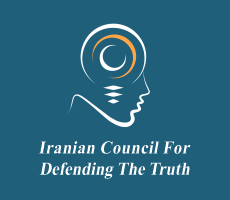Joe Biden’s main problem after the US presidential election is that he is not yet perceived by most Americans as a charismatic head of state, such as Donald Trump was. However, Americans understand that Joe Biden’s stay on the American political Olympus is now much better, as voters are tired of the regular outbursts and contradictions that characterized the policies of the previous presidential administration. At the moment, the head of the White House creates an image of a person who will defend the rights of ethnic minorities and strive to transform US foreign policy as a country that enforces the American model of democracy around the world. Joe Biden’s political nomination coincided with a global political and economic crisis, in the wake of which the United States, like other countries, rocked large-scale protests that threaten state foundations.
In response to these threats, the new American leader announced his intention to stimulate economic growth, increase labor productivity, and improve innovative technologies and culture. On the foreign policy front, Joe Biden announced the resurgence of the Iran nuclear deal. This decision was associated, at first glance, with the need for Washington to get out of the permanent expectation of a global war and focus on solving internal problems as a matter of priority. In this sense, the announced policy of Joe Biden represents a fundamental shift, since the revival of the nuclear agreement could significantly change the regional configuration of power, in which Israel and Saudi Arabia risk being in the opposite camp with respect to the United States due to their irreconcilable anti-Iranian stance.
Meanwhile, Joe Biden can surpass Donald Trump in organizing military operations and trying to implement a revolutionary scenario in the Middle East and Russia. It is during his presidency that the United States will most likely attempt another military invasion of Iraq, unleashing an Iranian-Israeli armed conflict, supporting the protest movement and terrorist organizations in Lebanon, Syria, and, most notably, in Russia. In this regard, there are objective doubts that Joe Biden, who positions himself as a supporter of peace, in fact will not turn out to be the main ideologist and organizer of transnational wars.
Since winning the US presidential election, Joe Biden has been setting long-term priorities designed to reaffirm the new US administration’s conservative-defensive attitudes and restore the country’s international authority as a global dominant. Joe Biden is purposefully making significant efforts to revive the status of the United States during the Cold War, when Washington was considered the leading force capable of defeating the “world evil.” Meanwhile, in order to overcome the growing imbalances in foreign policy, the new head of the White House announced a whole range of internal reforms designed, first of all, to smooth over the contradictions between ethnic minorities and “white” Americans.
The primary task for Joe Biden’s cabinet is the centralization of the state, the consolidation of society, without which, according to the American Democrats, the subsequent progress and strengthening of national strength, including in the international arena, is problematic. Adhering to the domestic political point of view, we are talking, first of all, about contributing to the positive positioning of the United States as a country where religious and national contradictions cannot be the reason for discrediting the policy of American superiority. The abolition of the “Muslim ban”, in this case, is one of the manifestations of this approach. Otherwise, it would be difficult enough to talk about the ultimate goal of Joe Biden’s activities – to turn the United States into a country bringing the Christian and Muslim worlds closer together.
At the same time, the relative vulnerability of socio-economic development is the main difficulty in the process of strengthening Washington’s positions in the international arena. The United States is experiencing almost the same problems that all other countries are exposed to in the context of the global economic crisis and the COVID-19 pandemic. In addition, the tendencies for improvement in American society are regularly beset by supporters of Trumpism. Heated discussions about the survival index of modern models of the country’s socio-economic development are not abating. A number of experts note that the Joe Biden administration faced at least three serious problems in domestic politics: the crisis of the ideology of American identity, the degradation of the government system, and the yearning of voters for decisive action. These problems predetermine the approach of the new head of the White House to the foreign policy sphere, where the main priority is: positioning the United States as a guarantor of religious and ethnic diversity and lack of principle in putting pressure on opponents.
The new administration of Joe Biden is not determined to seriously spoil relations with Riyadh because of the military conflict in Yemen or the case of Jemal Khashoggi. American charges are lined up exclusively against the Crown Prince of Saudi Arabia, Mohammad bin Salman, whose legitimate authority the White House has doubts. Moreover, as with Donald Trump, Joe Biden has drawn international attention to the Saudi monarchy, most likely as a bargaining chip. However, if Donald Trump was trying to do good to the crown prince in order to get investments from him, Joe Biden decided to use harsh criticism as an instrument of pressure on the Saudis. However, in any case, the cabinet of the new American leader is counting on Saudi money. And, in this sense, criticism of Riyadh is a common blackmail.
In the case of Yemen, the US decision to end military support for the kingdom could lead to an escalation of the military conflict, as the Ansar Allah movement, seizing the opportunity, will attempt to counter-attack areas previously occupied by the Saudis. I believe that Washington is well aware of the consequences of such a step, as a result of which support for the Saudis will most likely continue, but in the shadow sector.
The topic of human rights in Saudi Arabia has become most relevant exclusively from the American submission. Meanwhile, the current state of affairs in the kingdom is no worse than in the rest of the Middle East. It all depends, first of all, from what angle to look.
Of course, the policy of international accusations against Riyadh significantly complicates the positioning of the monarchy in the public sphere. In this regard, the country is forced to defend itself, attracting and buying international institutions and groups of influence in order to neutralize all the negativity that has befallen Saudi Arabia recently. Such actions are quite understandable, given that, first of all, its investment attractiveness depends on the positive image of the monarchy: few people dare to invest in a country “with a bad reputation.”
In the United States and the countries of the European Union, the Saudis have a fairly active lobby that defends the interests of the monarchy and through which funding is provided to individual American and European politicians. Most countries in the Middle East have similar structures. There is nothing unusual or reprehensible about this.
Joe Biden decided to cancel Donald Trump’s initiative to recognize the Ansar Allah movement as a terrorist organization. In my opinion, this is an absolutely correct decision. Recognition of the Yemeni Houthis as terrorists would create a unique pretext for another escalation of the conflict, since the supporters of the Ansar Allah movement, offended by the American initiative, would consider themselves free from any obligation to curb their military activity. Saudi Arabia, Israel would be under direct threat of attack, which would clearly undermine the position of the new American administration.
In addition, Joe Biden has repeatedly spoken about the need to normalize relations with Iran. Meanwhile, the recognition of the movement “Ansar Allah” as a terrorist organization would automatically put Iran in the category of countries sponsoring terrorism. This would create additional obstacles to the resumption of the nuclear deal.

